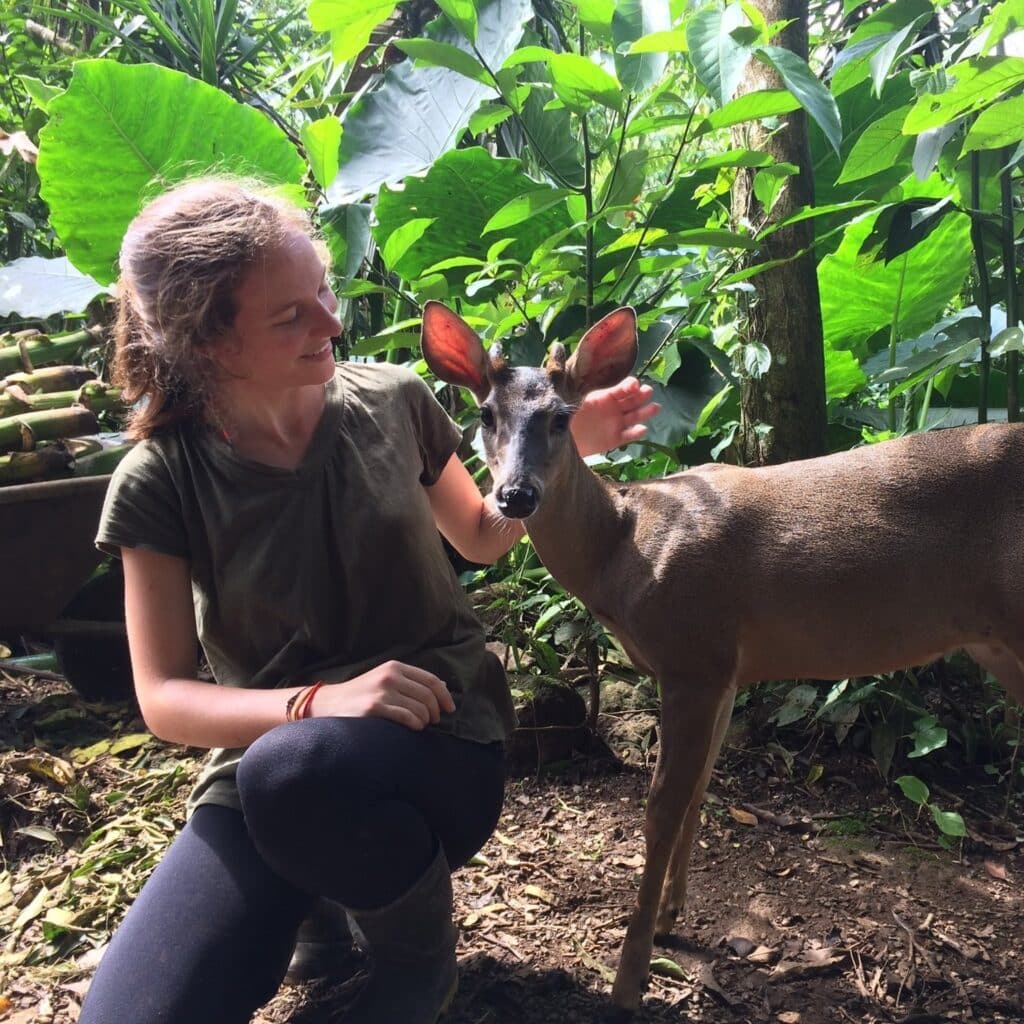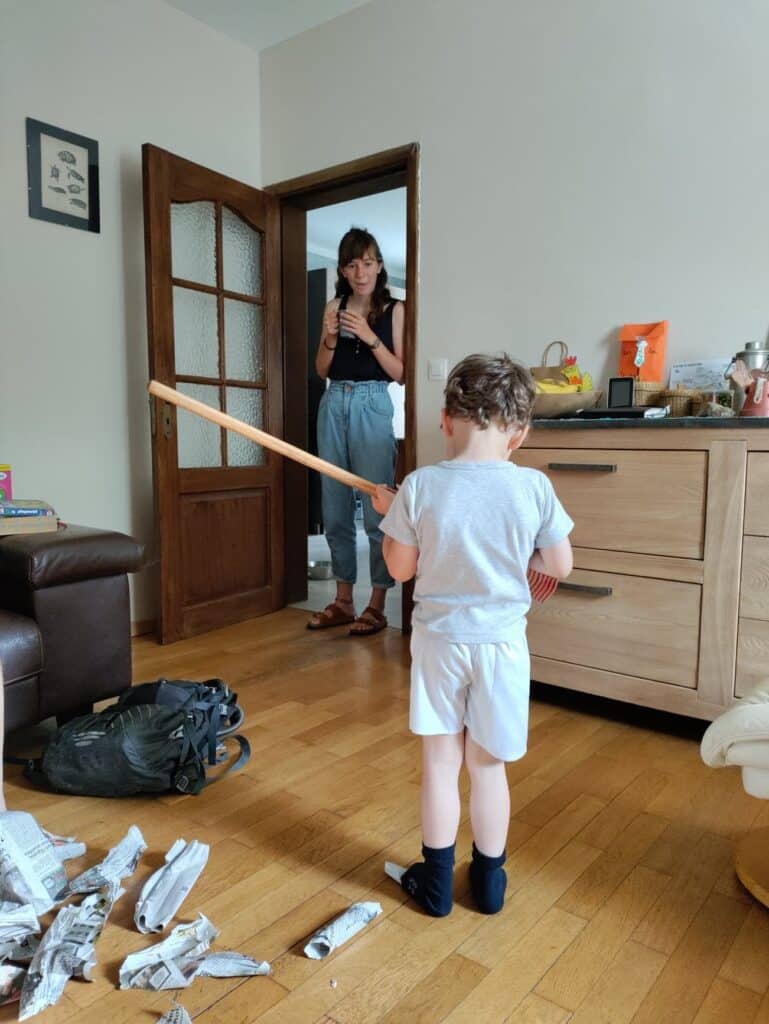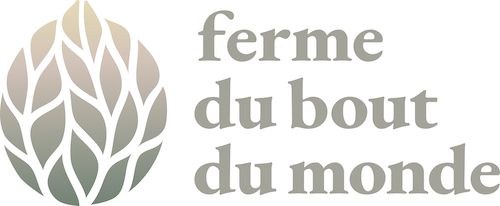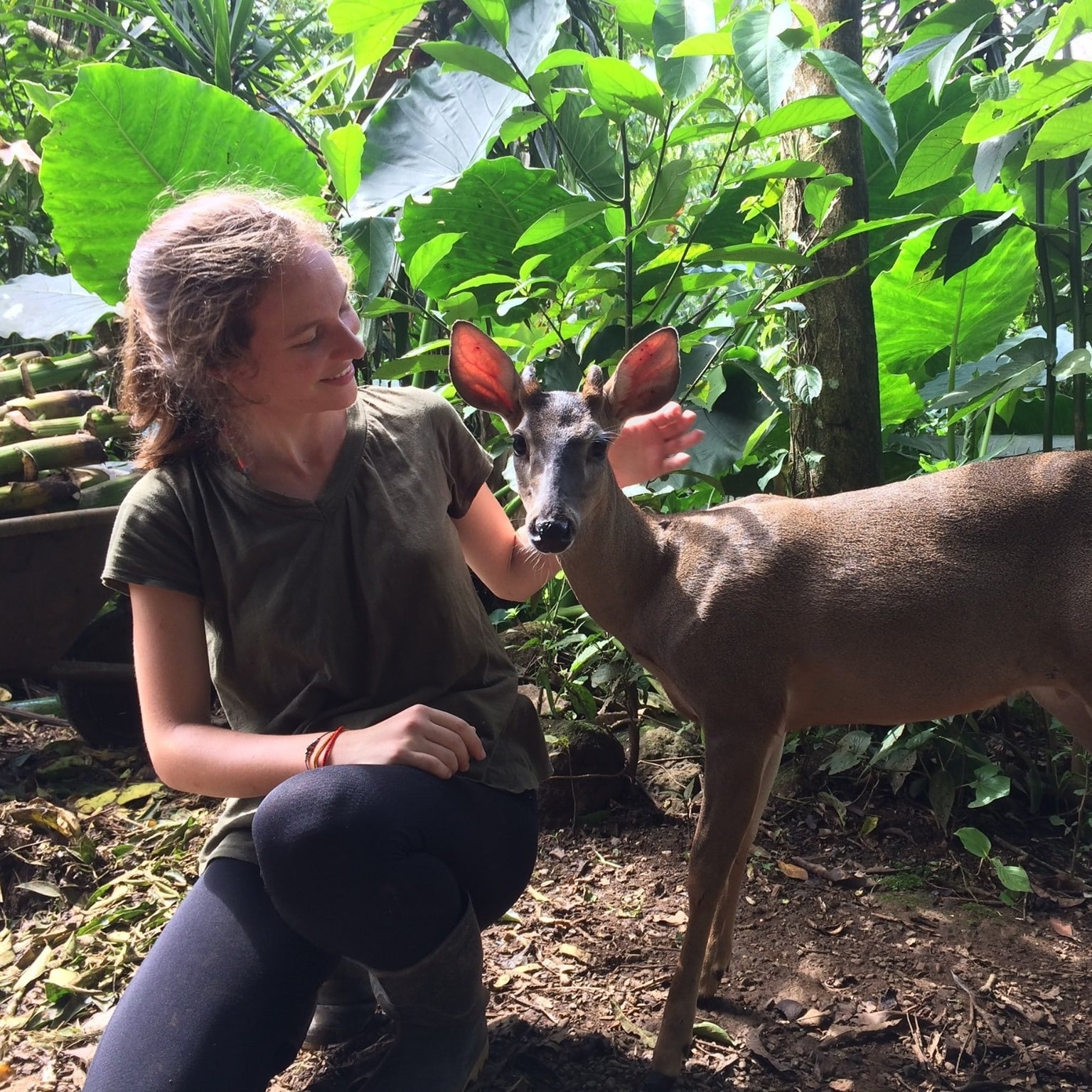by Magalie

As you probably know, the farm welcomes WWOOFers to help with projects. Sophie, a WWOOFer passing through, tells us about her project kot: the Oasis.
Q: First of all, what is a project kot (or Kap)?
A: A Kap is a group of students who are united by a common interest. There are ‘internal’ members who live together, sharing the same kot (or apartment). There are also ‘external’ members who participate in the project although they don’t live in the kot.
Kaps are funded by the University and managed by l’Organe (a non-profit organization). There are 79 in total. Kaps are like small non-profits, they organize themselves with a president, treasurer, secretary, meetings, events…
You can find Kaps focused on music, photography, mathematics, fermentation, sports…
Q: What is (the kap) Oasis?
A: It’s a kap focused on voluntary simplicity. Voluntary simplicity revolves around 3 axes: slowing down, decluttering, and building connections. It’s a lifestyle we try to achieve and teach others through various activities.
At Oasis, we are 8 internal and 3 to 5 external members.
To learn more about Oasis:
https://www.facebook.com/oasislekot/
Q: What activities do you offer?
A: First, it’s important to know that everyone, student or not, can participate in the activities offered by Kaps.
We organize meditation training. We work with the Reliance center, connecting trainers and participants to offer an 8-week training course (2 hours/session) at a reduced price.
The ‘Il en faut peu’ festival is a fair where 9 participants are invited to share about various topics: living in a tiny house, worm composting, producing all your own food… Each speaker has their stand where people can ask questions and listen to their experiences.
The illegal banquet consists of a large meal where dishes are prepared from unsold store items destined for the trash. We collect all the food and prepare good dishes with it. This raises awareness about food waste and shows people that you can make good things to eat from it.
The ‘discu-thé’ activity is a discussion table. The topic is given in advance, and those who want can come. Around tables with different sub-topics, people exchange and debate over tea.
We also publish a good news journal. In it, we communicate with students about our project, present different initiatives or projects, share cultural recommendations (all types of media) and interviews such as those with a bibliotherapist or a zero-waste baker/brewer.
Our last activity is the ‘kot swap’, a large student giveaway event.
Q: Do you have joint projects with other Kaps?
A: Indeed, other Kaps are also oriented towards ecology/alternative lifestyle. With 11 other project kots like: Kap sûr l’avenir, Kout’pouce, Develop’kot, Kap Vert, Kot Planète Terre… we organize the ‘Cap transition’ festival once a year. For 3 days, we offer different activities for a more sustainable and environmentally friendly lifestyle.
To learn more about Cap transition: https://www.captransition.be/
Q: Has living in a Kap changed you?
A: Obviously, first there’s the joy of being a kapist and living in community with wonderful people. It’s an experience that changes people. You can develop new skills in management, creativity, etc. It also increases self-confidence. We also learn a tremendous amount through our activities and encounters. The kapist life isn’t well-known enough, but it’s really worth exploring, there’s something for everyone.
Q: You’re here WWOOFing, is it related to your project?
A: Yes, it’s an experience in voluntary simplicity. Living here for two weeks allows me to build connections with farm members I didn’t know. Vacations like this allow you to slow down, focus on the day’s activities. We participate in a project by being just one stone in the edifice. I participate in the farm’s development knowing that the results of my work will only be visible in a few months when the plants have grown. And decluttering happens through returning to nature and what’s essential. With the nourishing earth, I can directly understand what we eat and where it comes from.
I had already had other experiences in the past, like participating in a turtle protection project in Costa Rica. And in another farm that practiced permaculture.
Here at Ferme du Bout du Monde, I find the ‘building connections’ aspect of voluntary simplicity. It’s a place that carries many beautiful projects that interest me, like the sociocratic school project.
Q: What are your plans for the future?
A: My dream would be to live in an eco-place, or even create one. It’s a long-term goal, so until then I’m taking all possible experiences (training in permaculture, sociocracy…).
Thank you very much to Sophie for your time and your positive and joyful spirit that have greatly enriched Ferme du Bout du Monde. <3


